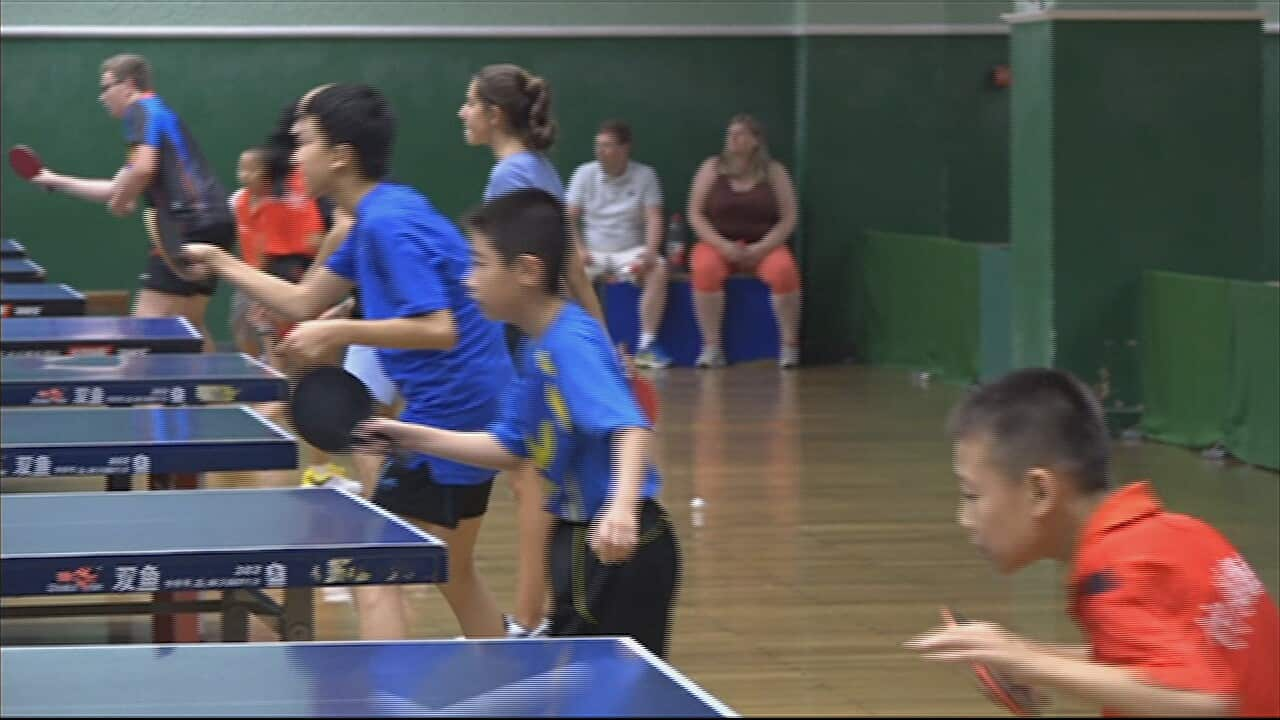China, along with the US, is predicted to top the gold medal tally at this year’s Rio Olympics. But the country’s decades-old sports system is now struggling to recruit its next generation of stars. It’s now being forced to evolve in order to preserve its position in elite international sports
It’s the middle of the summer holidays in China, but at Shichahai sports school in central Beijing, it’s business as usual. The table tennis hall is filled with hundreds of primary school-aged children training. Among them is ten year-old Zhang Zi Yu, a ten year-old who has been training since he was six, and has been singled-out a one of the most talented in his cohort.
“I’ve just been taught how to hit and rally far from the table,” he tells SBS, before quickly returning to his training partner.
Shichahai is one of the country’s so-called ‘gold-medal factory’ schools, and has so far produced ten Olympic gold medallists and 38 world champions. In another hall 17-year-old Tian Yuan is also hard at training. His father is a badminton coach, while his mother is a member of the Olympic team currently in Brazil for the Rio Games.
“I work train six days a week… I know my hard work will pay off eventually. Everyone wants gold.”
China’s Olympic prowess has reached new heights. It topped the gold medal tally with 51 at Beijing in 2008, and claimed 38 in the 2012 London, just falling short of America’s 46.
But enrolment at schools like Shichahai are dropping, with parents increasingly put off by rigorous training and little future outside of sports. China’s sport system was established in the 1950s, a time when many in the country struggled to eat. The state pooled resources to groom Olympians and gain international clout. But China sports investment consultant Priscilla Ho says this is changing.
“Originally we trained people for being Olympic stars, getting gold medals, helping national pride on an international platform. Now it’s the next stage, encouraging people to participate in sports.”
The government has increased the role of sport in Chinese education and business, hoping to develop a new grassroots generation of athletes motivated by love of the game, and not just the glory. According to Priscilla Ho this trend towards a mass-oriented sporting culture began after the 2008 Beijing Olympics.
“Statistics show that after the Beijing Olympics participation in a range of sports jumped by about one third.”
Instead of elite athletes being nurtured in traditional Chinese Olympic sport, she says a wider more general participation will allow China’s future generations of athletes to develop. The greatest uptake, she says, has been seen in sports such as football, basketball and running.
“There’s more of an understanding that sport is beneficial not only to society’s health, but also the economy, innovation and competitiveness,” says Ho.
Back at Shichaihai sports school vice president Zhang Jing says the institute has undergone reform to ensure its students are given a more well-rounded education. “We understand not everyone can be Olympians, and we make sure our students are prepared for whatever life they choose,” says Zhang.

